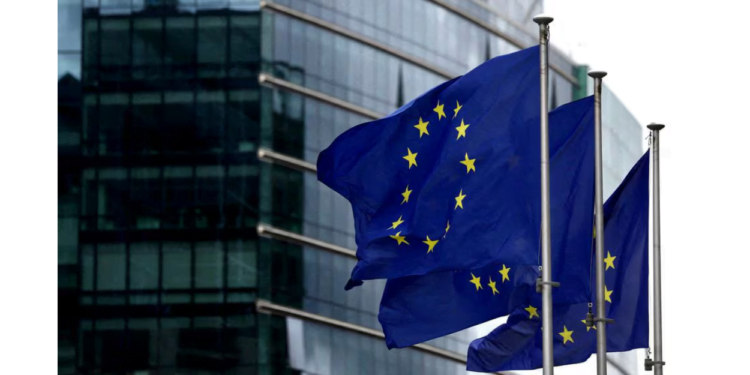European Union Parliament and Council have reached a provisional agreement prohibiting the products and goods made with forced labor to enter in European single market after negotiations on finalizing the regulation.
Belgium (Brussels Morning Newspaper), The EU Parliament, and the Council on Tuesday mutually agreed on a deal to implement the ban on the import and export of any product made with forced labor in the EU market. The ban covers all types of goods, either produced in or imported into the European market, that involve any kind of forced labor during production, manufacture, harvest, or extraction. The regulation outlined the respective responsibilities of the commission and national competent authorities to enhance transparency in the investigation and decision-making process.
Pierre-Yves Dermagne, Belgium’s Economy and Labour Minister said, “It is appalling that in the 21st century, slavery and forced labor still exist in the world. This hideous crime must be eradicated and the first step to achieve this consists in breaking the business model of companies that exploit workers. With this regulation, we want to make sure that there is no place for their products on our single market, whether they are manufactured in Europe or abroad.”
A new forced labor single portal would be established to regulate the new laws comprising guidelines, information on bans, and a database of high-risk areas and products including reports from international organizations (such as the International Labour Organization).
The Database of High-risk products and areas
The EU Commission will compile a list of all specific economic sectors in specific geographical areas that are at risk of a possible violation of forced labor. This action will draw up a criterion to evaluate the necessity of investigation. The importers and exporters will need to extra demonstrate about the products and product groups that are pinned down by the commission.
Risk-based approach
The EU Commission and national competent authorities set a clear-criteria to assess any possibility of violation of this regulation.
These criteria are:
- the scale and severity of the suspected forced labor, including whether state-imposed forced labor may be a concern
- the quantity or volume of products placed or made available on the Union market
- the share of the parts of the product likely to be made with forced labor in the final product
- the proximity of economic operators to the suspected forced labor risks in their supply chain as well as their leverage to address them
Who will be the investigators?
The EU Commission will be the leading investigator outside the EU territory. If there are risk in the territory of a member state, the competent authority of member state will lead the investigations. During the investigation, if the competent authority finds any possibility of law violation and discover new information about any suspected forced labor, they must inform the competent authority of other member states. Similarly, they are required to inform Commission if the suspected forced labor is occurring outside the EU. If the investigation concludes that forced labor has been used, the authorities have the withdrawal right the suspected products rom the European single market, and online marketplaces, and confiscated at the borders. The specific will have to be go for donation, recycling, or destroyed.
If the investigation concludes that forced labor has been used, the authorities can demand that relevant goods be withdrawn from the EU market and online marketplaces and confiscated at the borders. The goods would then have to be donated, recycled, or destroyed. Any products considered important for the Union may be withheld until the company eradicates the forced labor from its supply chain.
Background:
Approximately 27.8 million people are engaged in forced labor all across the globe in many industries. Forced labor is majorly seen in private sectors but there are some public sectors where such cases exist. The proposal for regulating laws prohibiting the sale of products made with forced labor within the EU and the export of such products from the EU was initiated by the European Union Council in September 2022. Both the European Union parliament and Council adopted negotiations on January 22, 2024, to finalize the framework text of the regulation.
The provisional agreement still needs to be formally approved by the European Parliament and the Council to be enforced.




